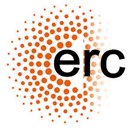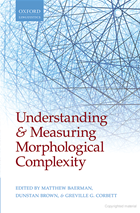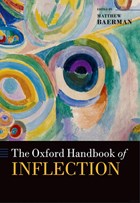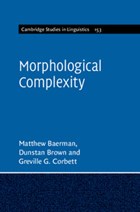Morphological complexity: Typology as a tool for delineating cognitive organization
Project Overview
Project
Morphological complexity: Typology as a tool for delineating cognitive organization
Project members:
Prof Greville G. Corbett
Dr Matthew Baerman
Prof Dunstan Brown (University of York)
Dr Scott Collier
Dr Maris Camilleri
Period of award
February 2009 - January 2015
Funder:
European Research Council (ERC)
Charting the limits of linguistic complexity opens up new perspectives for researching both language and the human mind. This project focusses on inflectional morphology, which is the systematic manipulation of word forms to express grammatical meaning. As a uniquely linguistic and uniquely human component of communication, morphology stands to reveal otherwise inaccessible aspects of cognition.
Morphological systems introduce an extra layer of structure in between meaning and its expression. This layer may operate at cross purposes to functional distinctions, attaining in some languages an astonishing degree of complexity. Such apparently arbitrary distinctions in form (inflection classes, irregularity and similar phenomena) are the particular focus of this project. They are a key resource for understanding mental processes as they represent an unconscious and yet highly structured autonomous system.
The project core is a comprehensive typological and historical investigation of morphological complexity (surveying 200 languages), with input from psycholinguistic and computational methodology. Such an interdisciplinary approach has not been attempted before. A deeper understanding of morphological complexity, a component of language which is free of the functional, physiological and sociological constraints that normally shape other linguistic structures, promises to advance both linguistic theory in particular, and the cognitive sciences as a whole.





